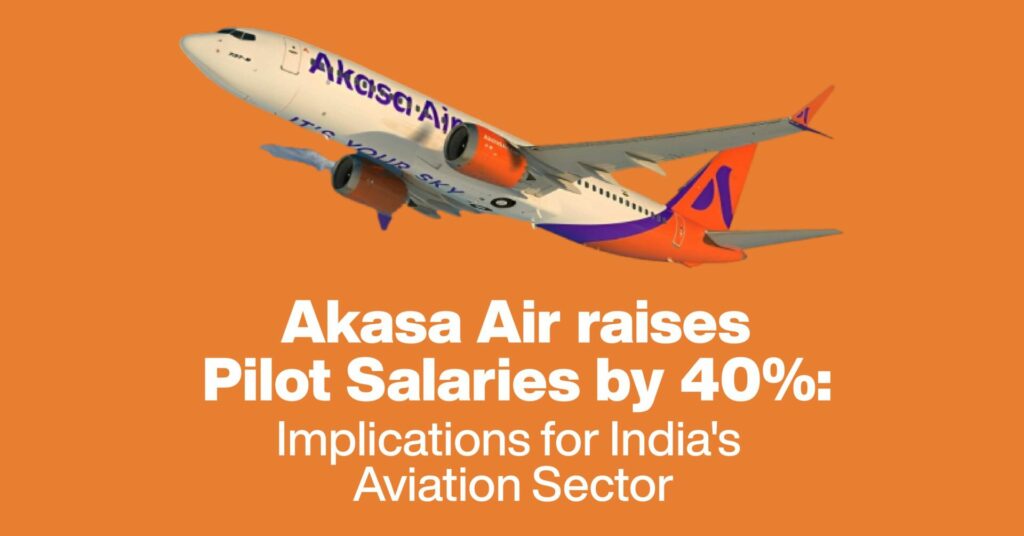The aviation industry plays a vital role in connecting people, businesses, and cultures across the globe. Within this industry, pilots hold immense responsibility for ensuring safe and efficient air travel. Recognizing the significance of skilled pilots, Akasa Air, the newest airline in India, recently made headlines by announcing a remarkable 40% salary hike for its pilots, effective in July. This move has generated significant interest and speculation within the aviation industry, signaling a positive shift and setting a potential benchmark for other airlines in the country.
Attracting and retaining top talent is crucial for any airline’s success, and Akasa Air’s decision to enhance its pilots’ compensation package demonstrates its commitment to this goal. As the first Indian airline to be entirely owned by Indians, Akasa Air is making its mark with the backing of prominent businessman Rakesh Jhunjhunwala. This article will delve into the implications of Akasa Air’s salary hike, shedding light on its potential impact on the aviation industry and the growing demand for pilots.
The Salary Hike: A Game-Changing Move
Akasa Air’s decision to increase pilots’ salaries by a staggering 40% is indeed a significant leap forward. This remarkable raise means that senior first officers will now earn Rs 3.40 lakh per month, while captains will enjoy a monthly salary of Rs 7.75 lakh. By offering such competitive compensation, Akasa Air aims to attract and retain top talent, ensuring that their flight crew is among the best in the industry.
Furthermore, Akasa Air’s commitment to its pilots extends beyond just salary increments. The airline is also providing additional benefits such as a guaranteed 5-year contract, medical insurance, and a pension plan. These incentives serve to create a favorable work environment and offer pilots long-term stability and security.
The Impact on the Indian Aviation Industry
Akasa Air’s salary hike not only benefits the pilots directly involved but also has far-reaching implications for the entire Indian aviation industry. As the industry recovers from the pandemic’s impact, the demand for skilled pilots is growing rapidly. By offering such competitive compensation and benefits, Akasa Air is poised to attract experienced pilots, many of whom may be seeking new opportunities due to the challenges faced by other airlines during the global health crisis.
Moreover, Akasa Air’s move is expected to set a benchmark for other airlines in India. In a highly competitive market, rival airlines may feel compelled to review and adjust their own pilot salary structures to remain competitive. This salary hike can potentially lead to a positive domino effect, benefitting pilots across the board and elevating the overall standards for pilot compensation in the country.
Akasa Air’s commitment to providing the best compensation and benefits to its pilots sends a strong message to the industry. It demonstrates that the airline is serious about competing with established carriers, challenging existing norms, and prioritizing pilot welfare. This bold move not only attracts attention but also sets a precedent for the industry as a whole.
Conclusion
Akasa Air’s decision to increase pilots’ salaries by 40% starting in July is a game-changing move within the Indian aviation industry. By prioritizing competitive compensation, Akasa Air aims to attract and retain top talent, setting new standards for pilot salaries in the country. This salary hike not only benefits the pilots directly involved but also highlights the growing demand for skilled aviators in the industry.
As the first Indian airline fully owned by Indians and backed by a prominent businessman, Akasa Air’s actions carry significance beyond their immediate impact. The company’s commitment to investing in its pilots’ well-being and success sends an impactful message to the aviation industry.

